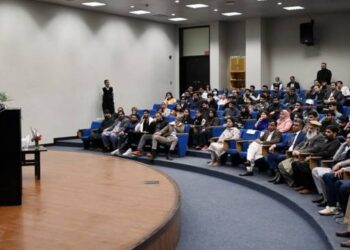![]() Follow Us on Google News
Follow Us on Google News
Amidst the allegations levied against him by the Rawalpindi commissioner, Chief Justice of Pakistan (CJP) Qazi Faez Isa has responded, asserting that anyone can make accusations but must substantiate them with evidence.
In an unusual move, CJP Isa engaged with a YouTuber outside the Supreme Court in Islamabad, emphasizing that while individuals have the right to accuse, they must furnish proof to support their claims.
Dismissing the allegations as baseless and far from reality, Justice Isa expressed concern that unfounded accusations could escalate to accusations of serious crimes like theft or murder. He urged for evidence to be presented, indicating that judgment could only be passed thereafter.
الیکشن دھاندلی کے الزامات
قاضی فائز عیسی کی ساتھ کمشنر راولپندی لیاقت علی چٹھہ الزامات پر مکمل وی لاگ کچھ دیر بعد pic.twitter.com/rfhWOSv0uL— imran waseem (@imranwaseem92) February 17, 2024
Moreover, Justice Isa underscored the constitutional limitation on the role of a chief justice in elections, emphasizing the need to preserve the integrity of the institution. He highlighted thwarting attempts to disrupt elections, emphasizing the importance of upholding democratic processes.
Meanwhile, the Supreme Court has opted not to initiate suo motu proceedings regarding the allegations raised by the Rawalpindi commissioner. Following a consultative meeting among the CJP and other Supreme Court judges, it was decided that Liaquat Chattha’s accusations would be addressed during a scheduled hearing on February 19, coinciding with a petition challenging election results.
Earlier, a significant consultation session convened in the chamber of the Chief Justice of Pakistan following the allegations of electoral malpractice and undue influence by Commissioner Liaquat Ali Chattha.
Notable judges, including Justice Muneeb Akhtar, Justice Yahya Afridi, Justice Ayesha Malik, and Justice Athar Minallah, deliberated extensively on the matter. The focal point of the discussion was the thorough examination of the allegations, with a decision anticipated on whether formal action would be taken in response.



































